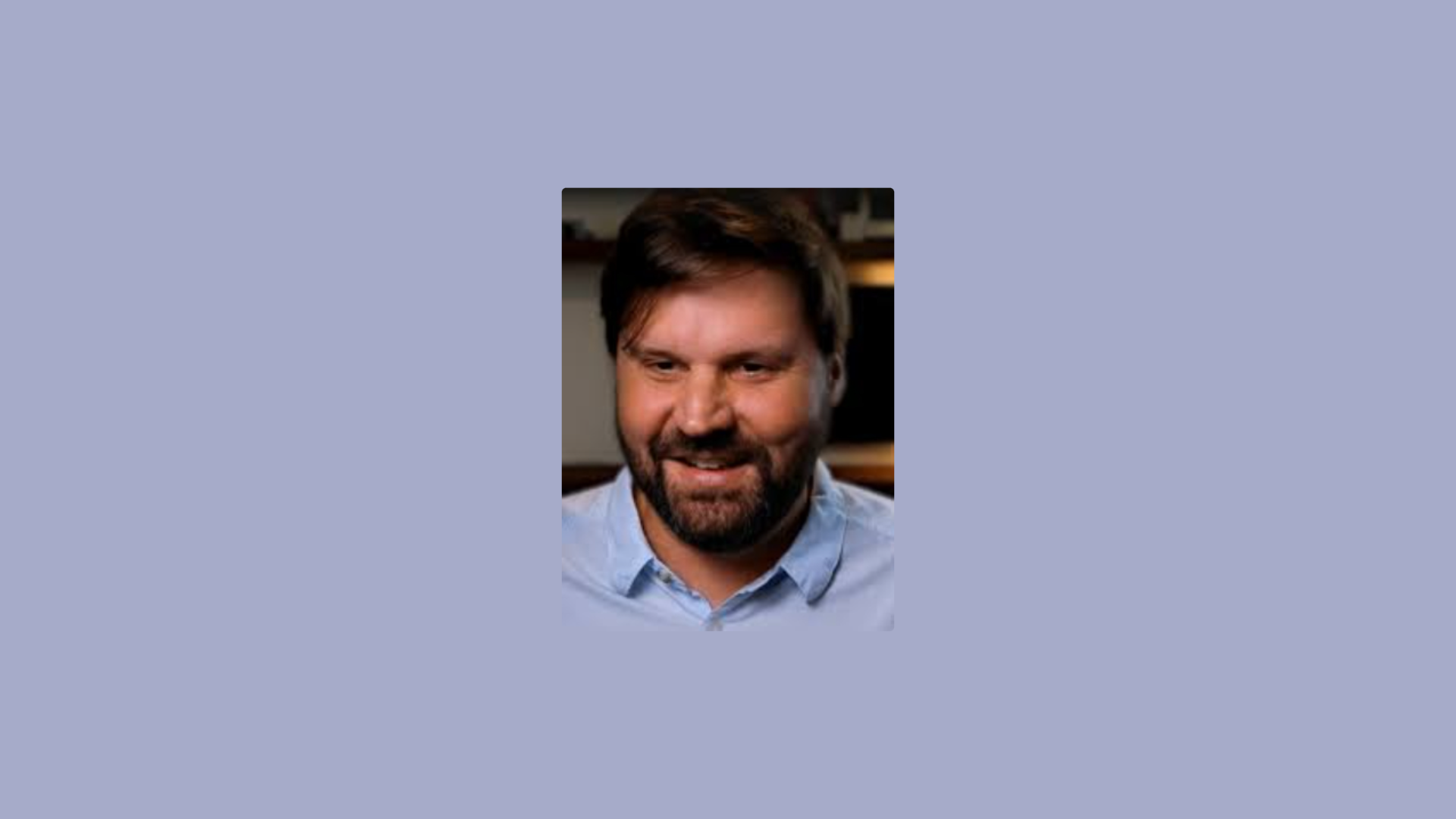Evan LaPointe, founder of CORE
Evan is a serial entrepreneur and visionary leader who founded, grew, and sold multiple businesses across product, sales, marketing, and analytics. His journey includes pioneering digital marketing attribution, developing products for tech giants like Google and Adobe, and earning several patents. Notably, Evan was the inventor of Satellite, an analytics-based technology acquired by Adobe. His influence extended further as he played a key role in shaping the long-term product strategy for Adobe’s Experience Cloud, a testament to his visionary leadership.

Driven by a desire to help companies evolve beyond incremental improvements, Evan founded Core in 2017. Core is focused on fostering highly intentional cultures, elevating talent philosophies, and prioritizing design to drive creativity and innovation. With a passion for human-centered design and unlocking businesses’ full potential, Evan’s work has empowered over 3,000 brands, including Microsoft, Apple, and Verizon, to transform their approach to customer experiences, analytics, and team building.
In addition to his professional achievements, Evan is a multi-instrumentalist, avid golfer, and collector of vinyl records. He maintains a personal mission to help great people do amazing things.
Drawing on his extensive experience and vision, Evan points out—two key epiphanies that shape how leaders understand and engage with their teams.
The two epiphanies
As Evan explains in this tweet, as we grow as leaders and managers, we typically experience two important shifts in understanding—two epiphanies. The first one is what he calls the “human nature epiphany.” This happens when we realize that people don’t always act as we expect them to. We learn that humans tend to resist change, prefer safety over risk, and sometimes offer opinions on things they may not fully understand. While this insight can explain why people behave the way they do, it often leads us to view everyone as the same—risk-averse, self-interested, and resistant to new ideas.
But Evan believes this is only the first step, not the most helpful one.
The second, far more important epiphany is what Evan calls the “personality epiphany.” This is where things shift. Instead of lumping everyone together, we start to see people as individuals. We notice that while some people avoid change, others embrace it. While incentives may drive some, others are motivated by a sense of purpose. Some individuals thrive on taking risks, while others focus on mastering their craft. Evan says this deeper understanding allows us to recognize each person’s unique strengths and match them to the right roles.
Evan believes that this second epiphany is the key to creating smarter, more collaborative, and more successful teams. It’s the shift from hiring for skills alone to prioritizing mindsets that help businesses and leaders truly thrive.
Evan has deep insights into leadership and innovation. In a recent conversation, he shared more about his philosophies and pivotal epiphanies.
Q&A with Evan
For leaders stuck in the ‘human nature epiphany,’ how can they recognize that they’re treating people too similarly, and what immediate steps can they take to break free from that mindset?
Evan: A clear sign that you may be struggling with this epiphany is that you’re constantly saying and thinking the word “should.” You’re caught up in how things should happen, how others should behave, and how situations should turn out. Related phrases like “you would think...” or “one would assume...” are also signs of this mindset.
Instead of dwelling on what should happen, shift your attention to reality—what is happening, what did happen, and why. Connecting “why” to reality helps you understand people’s choices. Once you know why, you’ll become strategic rather than stubborn and impulsive.
This is most easily seen in sales. Salespeople understand that how a prospect should act is irrelevant—what matters is how they will act. By recognizing this, they become perceptive and strategic, adapting their words and actions to guide each prospect towards a positive outcome, rather than stubbornly repeating the same ineffective behaviors.
The immediate step here isn’t cookie-cutter: you need to learn how to become perceptive, predictive, and strategic. This means challenging your mind to operate in ways it hasn’t before. Anyone can do it, but it requires accepting that the world doesn’t work the way you think it should—and that’s a necessary skill.
You could argue that leaders who reach the ‘personality epiphany’ sooner—seeing people as individuals—become more effective leaders. How can leaders accelerate their path to this deeper understanding?
Evan: This is not up for debate: leaders who haven’t reached this epiphany are simply not effective. They may look like great leaders for a while—maybe a few quarters—because they’re good at rallying people, pushing them forward, and creating a simple message and direction. However, over time, these one-size-fits-all approaches will increasingly clash with the unique traits of individuals, leading to escalating problems.
Accelerating this path is actually simple. It starts with realizing there’s no evidence in your life that people are similar—not your kids, siblings, family, managers, teams, leaders, or classmates. Everywhere you look, human beings are fundamentally different. The fact that we persist in seeing people as similar, despite clear evidence to the contrary, means we are actively denying what is evident.
The beauty of overcoming active denial is that once you let go of it, the world will teach you faster than you can imagine. You don’t need to start doing something different—you need to stop denying the reality of individuality.
When hiring, how can leaders spot candidates with the right mindset, not just the right skillset, during interviews?
Evan: Identifying the right mindset begins before you even interview candidates. Few leaders take the time to clearly define the ideal mindset for the role before starting interviews.
Most managers look for a mindset they personally like, without considering whether it’s truly the best fit for the role. This happens often in product work, for example. Many leaders seek product hires with qualities like humility, predictability, hard work, and structure. But these qualities don’t necessarily make someone great at product. Successful product people are typically hyper-compassionate, hyper-curious, and hyper-creative. Leaders often miss ideal candidates because they focus on personal compatibility instead of what the role demands.
You don’t need to hire someone you dislike, but it’s crucial to recognize when your personal preferences may clash with what’s objectively best for the role.
Once you understand the mindset needed for the role, ask questions designed to reveal that mindset. Questions that dive into compassion, assertiveness, creativity, or organization might include:
- “You’re facing a problem, and there is a clear best practice for how to solve it. What do you do?”
- “Why do you want this job, in particular?”
- “We are about to make the wrong decision. What do you do?”
- “How do you feel about teams that don’t have a documented process?”
You’ll be amazed at how different—and revealing—people’s answers to these questions can be. Most people don’t realize that interview questions should be designed to demonstrate a candidate’s true style and mindset, rather than just confirming their experience. “Have you ever...” questions may indicate whether a person has certain experience, but they reveal almost nothing about their style or approach. A person’s style and approach are what you will see moving forward, not just their past experience. It’s important to embrace this.
How can individual contributors develop the right mindset to thrive in their roles?
Evan: Instead of focusing on having the ‘right’ mindset, recognize that people have a range. Aim to develop a broad range of adaptability that acknowledges and leverages your natural preferences. A narrow mindset limits your ability to handle diverse challenges, while embracing your full range helps you succeed across many contexts.
Understanding your own preferences is crucial. Our personality assessment helps you understand your natural preferences and recognize areas where adapting may be challenging. This self-awareness enables you to recognize when you need to push yourself to grow rather than remain rigid.
Once you have a better understanding of yourself, focus on growth in key areas. Push yourself in areas that expand your adaptability, such as:
- Being more compassionate
- Being more creative
- Thinking more deeply
- Allowing some chaos and disorder
- Relaxing and reducing impulsivity
- Knowing when to stay quiet or speak up
- Being more tactful
- Understanding and addressing others’ anxieties
You can remain authentic while making intentional choices to expand your capabilities. Most ICs need more range, self-awareness, and intentionality. With these qualities, they can position themselves as dynamic, adaptable professionals, placing them in the top tier of talent.
If leaders still prioritize skillset over mindset, how can they expect their teams to grow, innovate, or handle challenges?
Evan: You can still grow, innovate, and handle challenges with a skillset-first mentality, but you’re going to feel like you’re constantly swimming against unseen obstacles. You’ll notice inconsistencies across team members and frequent misinterpretations, particularly regarding innovation.
People who lack openness often believe that innovation can be reduced to a simple process, as their mindset tends to favor structured thinking. They undervalue natural gifts and assume those qualities can be recreated with forms, scoring systems, or research. This misconception can lead to significant misunderstandings. They try to teach innovation skills without recognizing the underlying obstacles. Without an innovative mindset, these efforts often result in ineffective ideas and wasted time.
It’s like trying to cook a turkey in a refrigerator—without the right environment, true innovation can’t happen. Teams can still grow and tackle challenges, but they’ll likely do so at a pace and efficiency of less than 10% compared to a mindset-first approach. Sometimes, like the turkey in the refrigerator, they might even move in the opposite direction.
What can individual contributors do if their manager doesn’t understand their strengths or mindset? How can they navigate this situation to still thrive in their role?
Evan: According to Gallup, companies fail to select the candidate with the right talent for managerial roles 82% of the time. So, if you find yourself with a manager who doesn’t ‘get’ you, remember: this is unfortunately common. Here’s the game plan…
- Assess futility. If your manager is truly ineffective and creating a toxic work environment, your best move is to start looking for a change. Consider making it a career non-negotiable to work with great managers whenever possible, as it brings benefits across the board: faster learning, more opportunities, better work-life balance, and more happiness. Bad managers, on the other hand, can seriously limit your potential.
- Recognize ‘futility’ versus personal preferences. Futility doesn’t mean your manager is just pushing you or giving feedback you don’t like. A truly ineffective manager prioritizes trivial things, creates useless work, provides feedback based on personal biases, and may even act hurtfully. Good managers may challenge you, but they prioritize well, give valid feedback, and genuinely want you to grow.
- Refine self-awareness and communication. Assuming it’s not entirely futile, view this experience as a chance to articulate your strengths and mindset clearly. Managers who don’t ‘get it’ are actually the perfect crash test dummies for refining your communication skills. Develop the ability to explain and defend the value of non-obvious qualities like creativity, compassion, comfort with chaos, and sensitivity to risk.
In my coaching, this need for clear articulation is a recurring theme. Most people struggle to describe their work’s value effectively, and poor answers to these types of questions can squash your potential. However, once you can effectively communicate your unique value, even to those who may not initially appreciate it, your career trajectory becomes significantly steeper.
Evan’s journey reminds us that truly great leadership isn’t about having all the right answers—it’s about asking the right questions and seeing people for who they really are. By embracing both the “human nature” and “personality” epiphanies, leaders can move beyond superficial fixes to create teams that are resilient, adaptable, and deeply connected. Whether hiring, managing, or growing, it’s about prioritizing mindset over skill set and valuing the unique dynamics of each individual. This shift doesn’t just benefit businesses; it transforms cultures, making space for innovation, collaboration, and authentic success.





